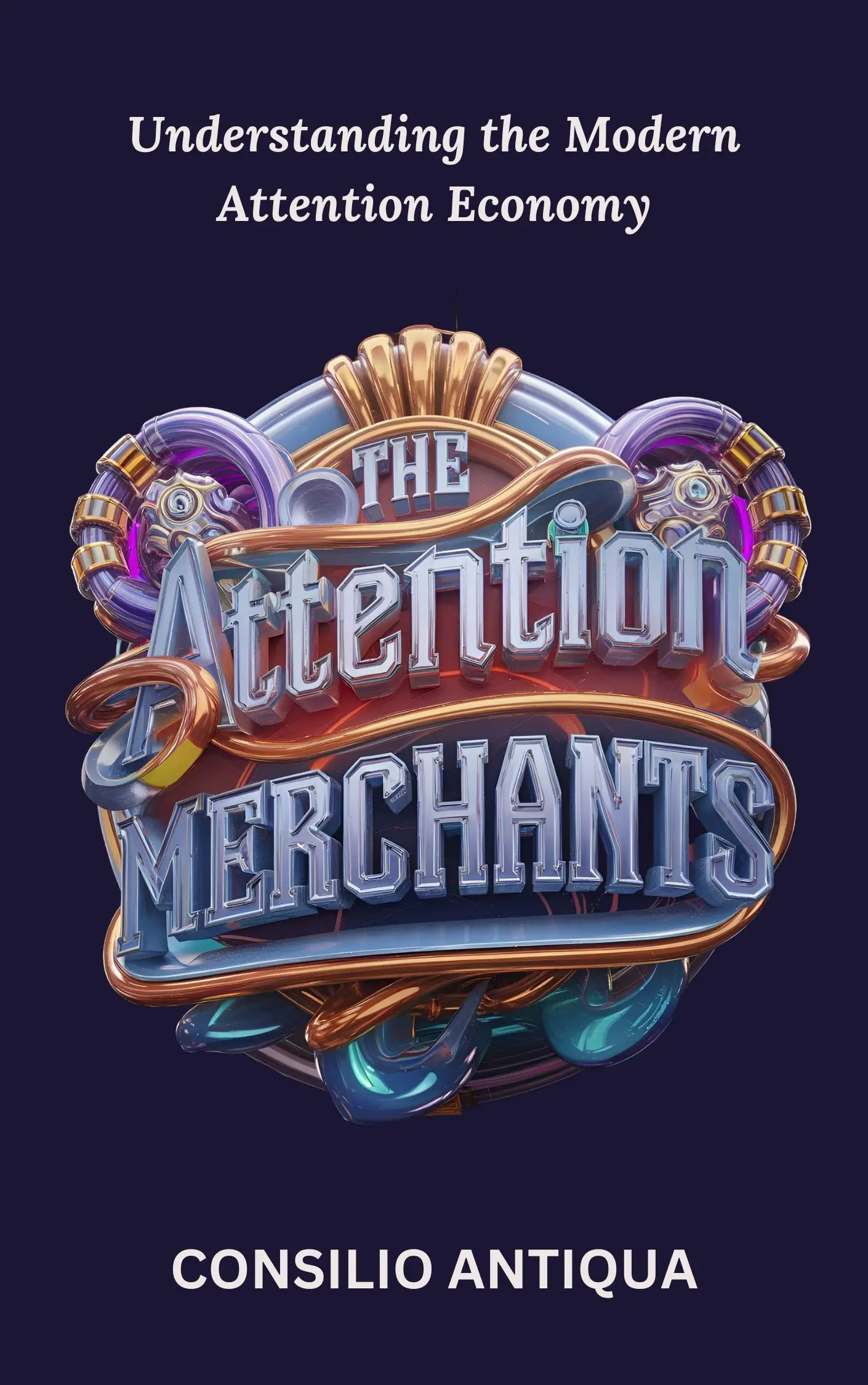
The Attention Merchants | Chapter 2. The Value of Attention
Chapter 2. The Value of Attention
Imagine a typical morning commute. You're packed onto a train like a sardine in a can, surrounded by a sea of faces illuminated by the glow of smartphones. Notifications ping incessantly, news headlines flash across screens, and social media feeds scroll endlessly. Your own phone buzzes with a tempting invitation to check the latest viral video. In this moment, you're not just a passenger on a train; you're a participant in a vast, invisible marketplace – the attention economy.
Think of your attention like a farmer's plot of land. It's a finite resource, and just like the farmer can only grow so many crops, you only have so much attention to give. Every notification, every headline, every social media post is vying for a piece of that precious real estate. And in the digital age, that land has become incredibly valuable.
The internet, once a quiet frontier of information, has transformed into a bustling marketplace where attention is the most sought-after commodity. It's a digital gold rush, with tech companies, advertisers, and content creators all scrambling to stake their claim and capture as much of your focus as possible.
These "attention merchants," as they've been called, have become masters at grabbing and holding our gaze. They employ sophisticated algorithms that track our every click and scroll, learning our preferences and tailoring content to keep us hooked. Social media platforms, for example, use a technique called "infinite scroll" to ensure there's always something new to see, preventing us from ever reaching the bottom of the feed and potentially disengaging.
But how do these attention merchants make money from our focus? The answer lies in the monetization of attention. One of the most common methods is advertising. Every time you click on an ad or watch a sponsored video, you're essentially paying with your attention. The more eyeballs a platform can attract, the more it can charge advertisers for access to that audience.
Another way attention is monetized is through data collection. Every time you interact with a website or app, you're leaving behind a trail of digital breadcrumbs – your search history, your likes and dislikes, your location data. This information is incredibly valuable to companies, as it allows them to build detailed profiles of users and target them with personalized ads that are more likely to resonate.
The constant bombardment of stimuli and the relentless pursuit of our attention have profound consequences for individuals. Studies have shown that excessive screen time and social media use can lead to decreased attention spans, reduced cognitive function, and even increased anxiety and depression. We're becoming increasingly distracted, unable to focus on complex tasks or engage in deep thought.
The societal implications of the attention economy are equally concerning. The spread of misinformation and fake news is amplified by platforms that prioritize engagement over accuracy. The erosion of privacy is another major concern, as our personal data is collected and used without our full knowledge or consent. And there's a growing fear that the attention economy is making us more susceptible to manipulation and propaganda.
The future of the attention economy is uncertain, but one thing is clear: the battle for our focus will only intensify. As artificial intelligence becomes more sophisticated, the tools and techniques used to capture our attention will become even more powerful. But there's also a growing awareness of the value of our attention and a rising demand for tools and strategies to help us manage it more effectively.
In this new digital landscape, understanding the attention economy is no longer a luxury; it's a necessity. We need to be aware of the forces vying for our focus, the strategies they employ, and the consequences of living in a hyper-connected world. By reclaiming control of our attention, we can protect our mental well-being, make more informed decisions, and build a more mindful and fulfilling life in the digital age.
